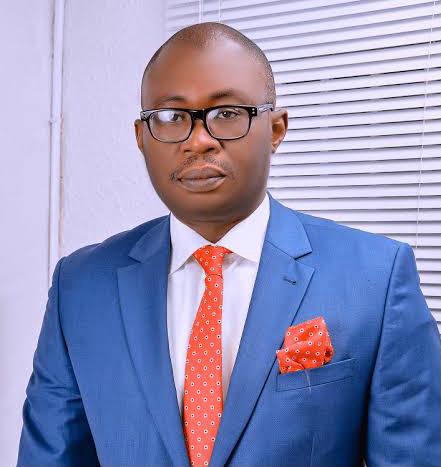While Africa and the rest of the developing world grapples with the challenge of access to electricity, and the need to ensure cost effective transition to renewable energy sources with the attendant concerns, it has become expedient that sub national governments are fully in synch with the global renewable alternative roadmaps and options. In this regard, sub national governments ought to proactively leverage existing global frameworks, agreements and instruments for the benefit of their citizens in rural and less developed communities.
The Nigerian Renewable Energy and Energy Efficiency Policy (NREEEP) sets out a framework for improving energy supply across the country and utilization of renewable energy sources. The policy also takes into account how the country can ensure energy efficiency with focus on reduction to inefficient consumption and providing better access to energy users with intent that renewable energy and energy efficiency are necessary steps to ensure cleaner and greener energy availability and supply. The policy’s aim is to achieve some specific objectives which include setting out a framework for action to address the challenge of inclusive access to clean energy resources, improved energy security and environmental sustainability objectives, amongst several others.
The policy also hopes to create opportunities for more jobs, improved industrial competitiveness, and lower pollution as it expects that outcomes will help to defeat energy poverty and also seek to ensure prospects for use of natural gas in energy supply and the establishment of framework for sustainable financing of renewable energy and energy efficiency projects and programmes in country.
According to the International Renewable Energy Agency (IREA) report published in January 2023, the report notes that nearly 60 per cent of Nigeria’s energy demand by the year 2050 can be met with renewable energy sources, saving 40 per cent in natural gas and 65 per cent in oil needs, at the same time. The report also acknowledges that with Nigeria’s rising population and other challenges related to the economy, the country needed to develop sustainable energy sources to meet the increasing need for energy access across all the key productive sectors of the economy.
The world currently faces an energy emergency as energy generation, distribution and consumption has remained an evolving issue with direct implications on livelihood and economic development of countries. In the past decade, there has been a significant shift towards the demand for energy as seen in such issues bordering on shortages and increased prices in oil, gas and electricity. Climate Change anxieties are also driving the global energy conversation, making energy issues one of the most existential debate globally and top on global development agenda as captured in the sustainable development goal, item 7 (SDG7).
Delta state, as an oil producing state, has a huge responsibility in terms of global energy conversation and this will demand strong regulatory focus, committed actions and collective engagements by all relevant stakeholders within the energy and electricity generation sector. The state currently grapples with energy supply and inadequacy issues with nearly half of the state’s population either off-grid or highly underserved by the national grid and most rural communities within the state not fully served or connected to the grid. This has impacted negatively on rural poverty numbers and even in most urban centers with migration from rural to urban center on the rise.
Addressing energy poverty with adequate energy supply and availability is an important measure of development, with huge implications on productivity and job creation. What has become paramount is that there is a need to sustain energy adequacy through leveraging opportunities in alternative sources and renewable options. This will require committed and strategic investment from the Delta State government. The available options which have proven very sustainable and affordable are Solar and Wind Power. These sources, experts believe will continue to remain reliable and less expensive.
Going forward, the delta state government, under its overriding development objectives which is captured as the M.O.R.E Agenda, is expected to put in place a deliberate mechanism to ensure significant investment in clean energy source as a measure to greatly enhance the state’s capacity to increase economic prosperity and create employment for vast majority of youths within the rural and urban centers. With the global transitioning to renewable alternative attracting serious attention and funding, the state stands at epoch to evolve a suitable energy solution that will guarantee long term prosperity for citizens while saving the environment from the impact of climate change currently at an alarming condition.
It should be of interest to mention that the entire Niger Delta region of Nigeria is characterized by lowlands with most of the delta being less than 6m above sea level, making the region very much exposed to rise in sea level. The abundant rivers, creeks and streams expose the region to adverse environmental negative impacts with significant flooding resulting from inland surface waters and the boundary coastal shelf. This provides a strong basis for delta state to key into energy alternative options with less consequence on the environment as it relates to global warming and induced climate change.
The most critical issue for the energy sector is how to ensure adequate energy generation and mass access at an affordable cost. The biggest task therefore is how the new administration led by Governor Sheriff Oborevwori can optimize energy supply and ensures energy sufficiency by exploring alternative energy sources such as Solar, Wind, Natural Gas, Hydro Electric and other renewable sources to bridge the energy gaps. The desire must include delivering efficient energy policy and programmes for the state with expectations that the economic fortunes of the state will be greatly improved within the coming years. This will have impact on the state’s ability to ensure the provision of essential services such as health, education and even security and ultimately improve the quality of lives of Deltans.
Dr. Ikem (Lagos), is a media consultant and policy analyst


